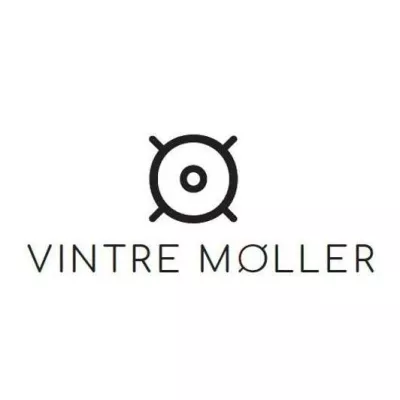General information
RDP Priority
- P6. Social inclusion and local development
RDP Focus Area
- 6B: Local development
RDP Measure
- M19: LEADER/CLLD
Beneficiary type
- Small-Micro Enterprise
Summary
The Local Action Group of Mid-Nordwest Zealand, Denmark, supported the creation of new production facilities required by a distillery to produce quality whisky utilising its own electricity, water and organic grain. The project further focused on utilising local supply chains and collaborating with other local food producers.
Results
- The company started producing Danish whisky. Vintre Møller is the first whisky distillery in the Municipality of Lejre and possibly the first in the world to be self-sufficient in water and electricity, and with such a high degree of organic production.
- The bottling facility that was created is modern and flexible, running on power generated by windmills.
- The whisky production is self-sufficient in water.
- Jobs were created and local workers were recruited.

Promoter
Vintre Møller
Funding
Total budget: 137 973 (EUR)
RDP support: 5 370 (EUR)
Private/own: 132 603 (EUR)
Resources
Documents
Good Practice Report - Vintre Møller: Local sustainable whisky production
(PDF – 573.44 KB)
Context
The Vintre Møller distillery was established in 2018 on the grounds of an old mill from 1413 located in Mid Zealand, Denmark. The production of beer, whisky etc. in Denmark is predominantly based on imports of processed grain. Given that this is a resource-intensive approach and puts strain on the environment, Vintre Møller wanted to demonstrate that this could be better done locally. At the outset, the company had two main purposes: to ‘bring home’ gin production from England and to revive Vintre Møller as a brand and producer of Danish sustainable spirits.
The company is a certified organic producer and grows and harvests its own grains and vegetables. All its products are produced on-site using water from its own water sources. The ambition is to be as sustainable as possible, which includes using green energy in all production processes and emphasising local collaboration with a focus on producing high quality products.
The first phase of company development was completed when the company started its production of a range of gin and vodka brands, now selling nationally and abroad. The plan for the next development stage was to produce whisky and to establish the climate-friendly production of organic Danish whisky with grain from local producers. In 2020, the distillery contacted the Local Action Group (LAG Midt-Nordvestsjælland) and enquired about funding options and support for the establishment of the whisky distillery on one of their premises.
Objectives
The overall goal of the project was to produce a sustainable, organic and commercially viable Danish whisky that was able to compete with other international and commercial whiskeys on the market. The ambition was to minimise production costs through self-sufficiency and by making use of local suppliers.
Activities
The following project activities were carried out:
- Constructing the distillery in an existing barn.
- Equipping the distillery with 500-litre pot stills (kettles) to distil and install the relevant facilities for the two stages of distillation: mashing and fermentation.
- Installing a bottling facility that is operated by wind power.
- In addition to setting up the distillery with the relevant equipment, the project also included the development of structured tours and tastings at the distillery, to attract additional attention to its products for buyers as well as tourists.
Main results
- The company has started producing Danish whisky. Vintre Møller is the first whisky distillery in the Municipality of Lejre, and possibly the first in the world to be self-sufficient in water and electricity, and with a high degree of organic production.
- The bottling facility that was created is modern and flexible, running on power generated by windmills.
- The whisky production is self-sufficient in water.
- Jobs were created and local workers were recruited.
- Interest in tours of the distillery is growing. The mill serves as a whisky warehouse and showroom, for business associates and locals.
- The project has confirmed the company in its vision to increase its whisky production over time as a means of diversification. In addition, the company is keen to further explore new ways of malting and processing grain for whisky production based on local and circular approaches and cooperation, thereby contributing further to climate change and environmental goals of food production.
- Vintre Møller has been a candidate for ‘Company of the Year’ for two consecutive years.
Key lessons
- The project had a focus on utilising green energy and also on contributing to a sustainable and local supply chain where surplus products and residues were used. Collaboration was key for this to work. It is considered unique to find a small community in Denmark with such a collaborative attitude in co-designing new products. The success of the project was based on many years of cooperation and trust. Networks mature over time.
- The biggest challenges of the project were in relation to national legislation on sustainable electricity and regulatory approval of production facilities as well as the regulations on food production. One recommendation is to seek support to identify and apply the relevant rules, particularly in areas that require approval by authorities.
Henrik Hammer

